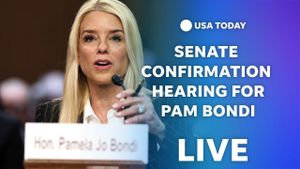On January 20, 2025, Donald Trump took the oath of office for his second non-consecutive term as President of the United States, wading through the chilly air of Washington D.C. to face thousands of supporters gathered for the event. The inauguration, held inside the Capitol due to cold temperatures, marked the beginning of what many expect will be another controversial presidency focused heavily on immigration and national security.
Immediately following his swearing-in, Trump delivered his inaugural address, outlining his plans for the next four years, which included the signing of multiple executive orders aimed at altering immigration policy and reinforcing security measures at the southern border. One of Trump's most significant announcements was the declaration of a "national emergency" at the U.S.-Mexico border, intended to combat what he termed the "invasion" of undocumented migrants. "We're going to close the southern border and send troops to stop the invasion of illegals to our country. We'll also designate all drug cartels as terrorists," Trump boldly stated.
Reinforcing his tough stance on immigration, Trump also indicated the revival of the controversial "Stay in Mexico" policy. This policy requires certain asylum seekers to remain in their home country—primarily Mexico—while their asylum claims are processed. This initiative has long been viewed as part of Trump's strategy to reduce the number of migrants entering the U.S. illegally.
Among the executive orders, Trump signed one particularly contentious directive aimed at redefining citizenship. This executive order seeks to deny automatic citizenship to children born on U.S. soil to undocumented immigrants. Experts anticipate significant legal challenges to this order, as it contradicts the current interpretation of the 14th Amendment of the Constitution, which grants citizenship regardless of parental immigration status. "It’s questionable how this will be implemented and it faces challenges, legally speaking, as many view it as unconstitutional," observed one legal analyst.
Trump's team emphasized the order would apply only to future births, prompting concerns about the potential consequences for millions of children born to undocumented parents. Many conservative circles have long pushed for removing birthright citizenship as part of their broader immigration reform agenda.
The day’s ceremonies included remarks from notable figures such as Jennifer González, the Governor of Puerto Rico, who expressed her enthusiasm about interacting with guests at the event. "It's a privilege to interact with the guests and important to advance what we want to do with Puerto Rico," González remarked.
Meanwhile, former Governor Luis Fortuño echoed similar sentiments, asserting, "The Republican party has changed and now it stands for the middle and working class." These endorsements from Puerto Rican leaders reflect the party's attempts to broaden its appeal amid previously reported tensions over immigration policies impacting the Latino community.
Despite the celebratory atmosphere and the display of vocal support from attendees, the reality of Trump's forthcoming policies poses serious questions and challenges for many American families. Whether through potential deportations or changes to citizenship rights, the ramifications of these orders will weigh heavily on the lives of millions.
Trump’s first day as President sets the tone for his administration, signaling not just continuity with past policies but also potentially unprecedented alterations to the fabric of immigration law and enforcement as America looks toward the future. With critics mobilized against these measures, the stage is set for legal battles and public discourse over the rights of individuals and families caught in the crosshairs of this administration's immigration agenda.



